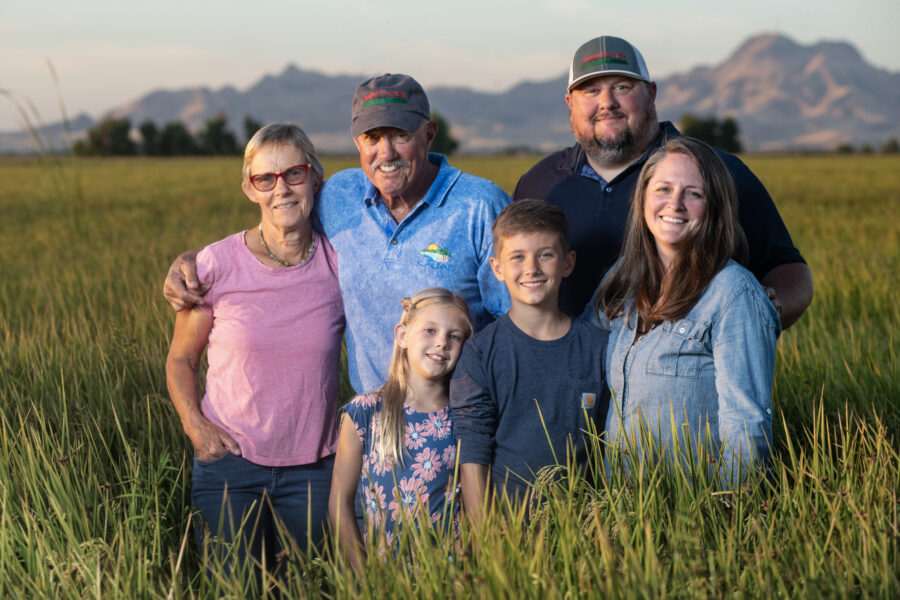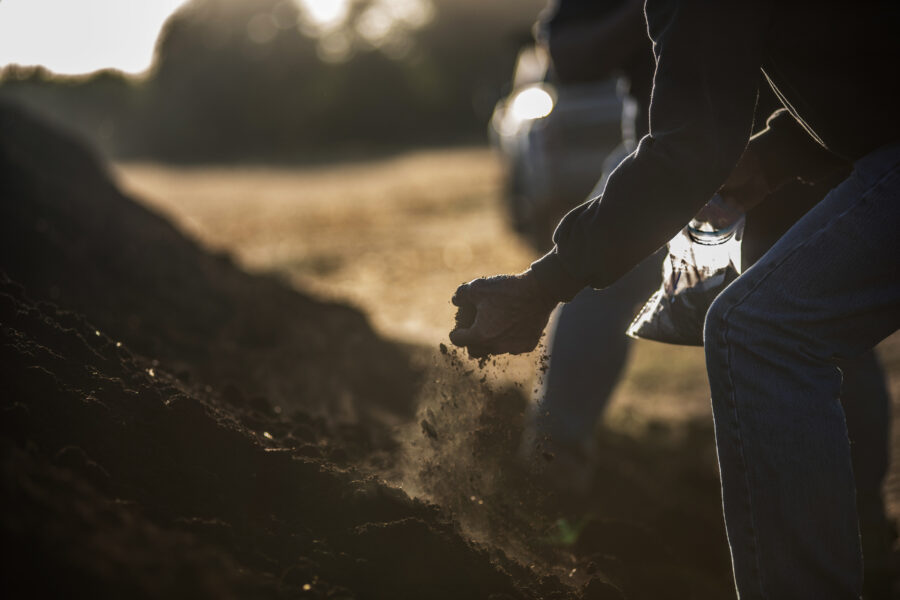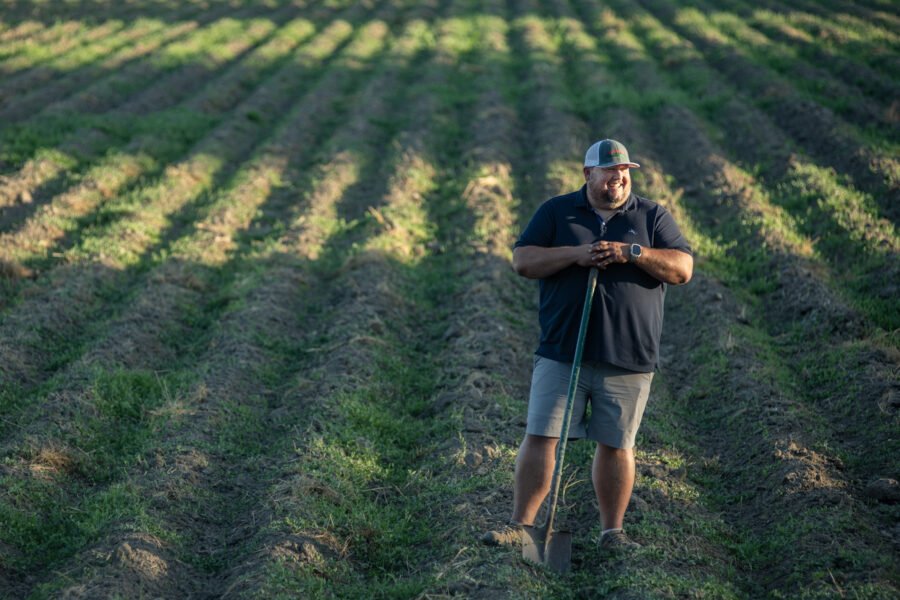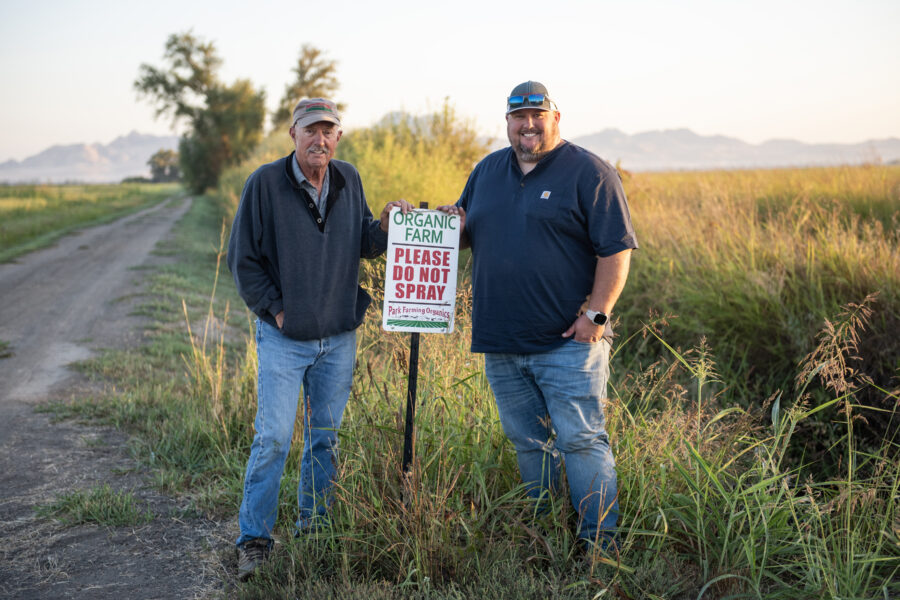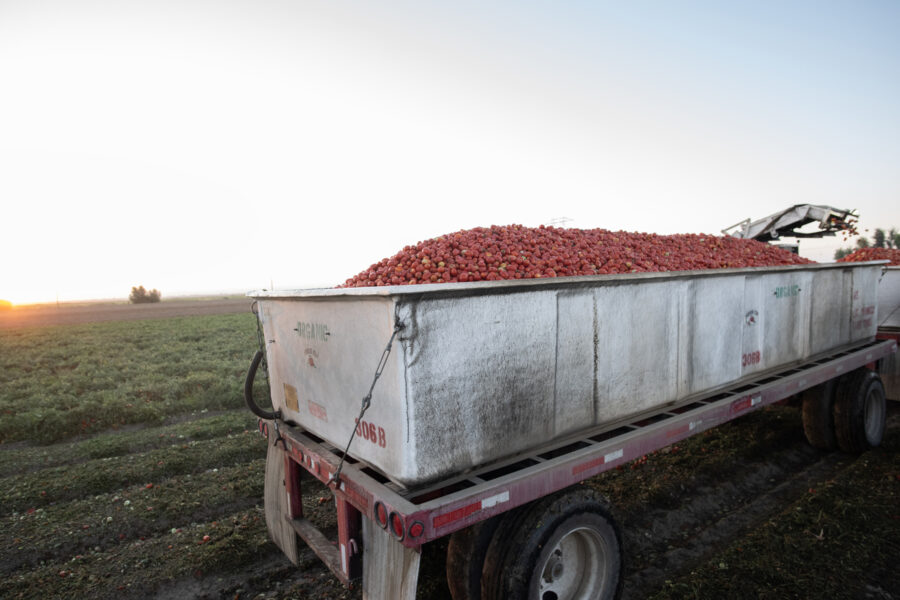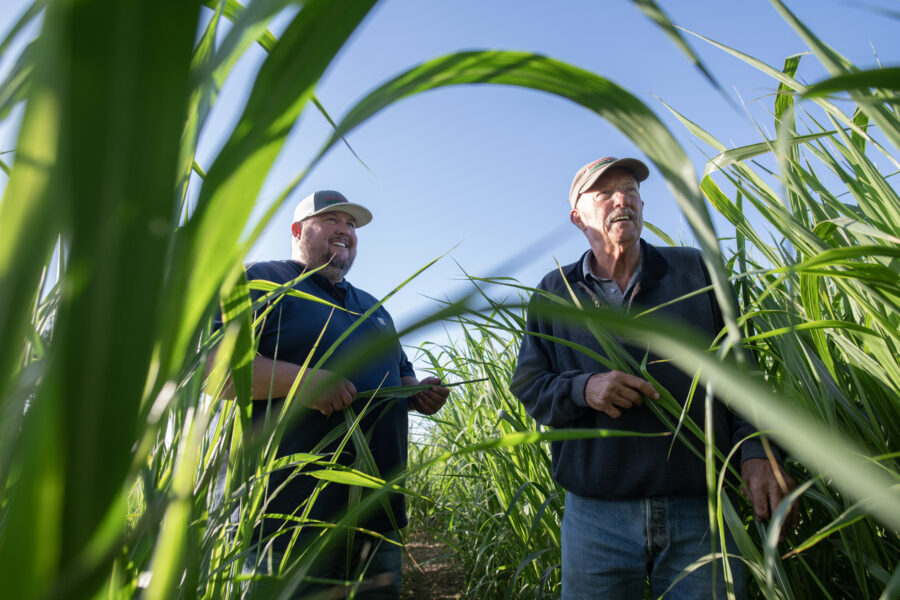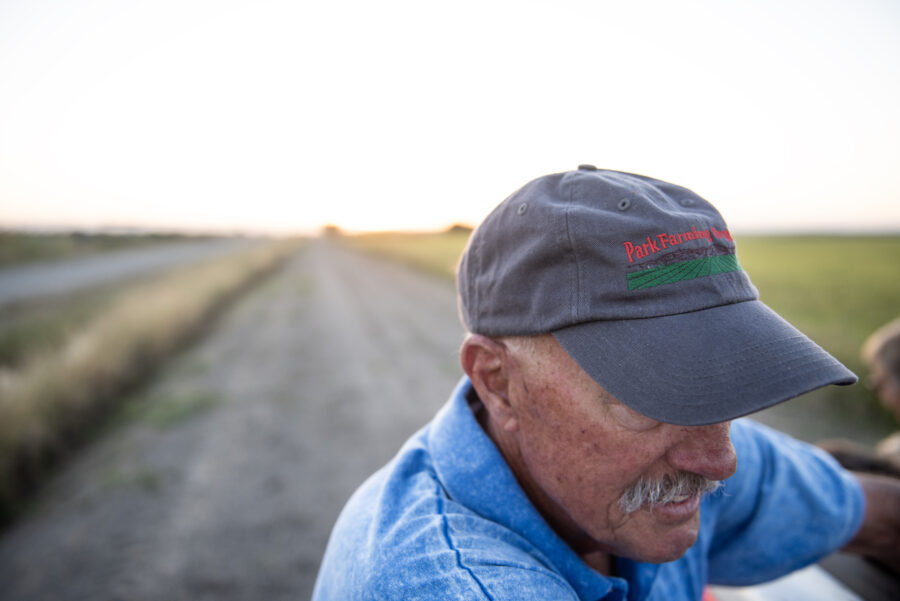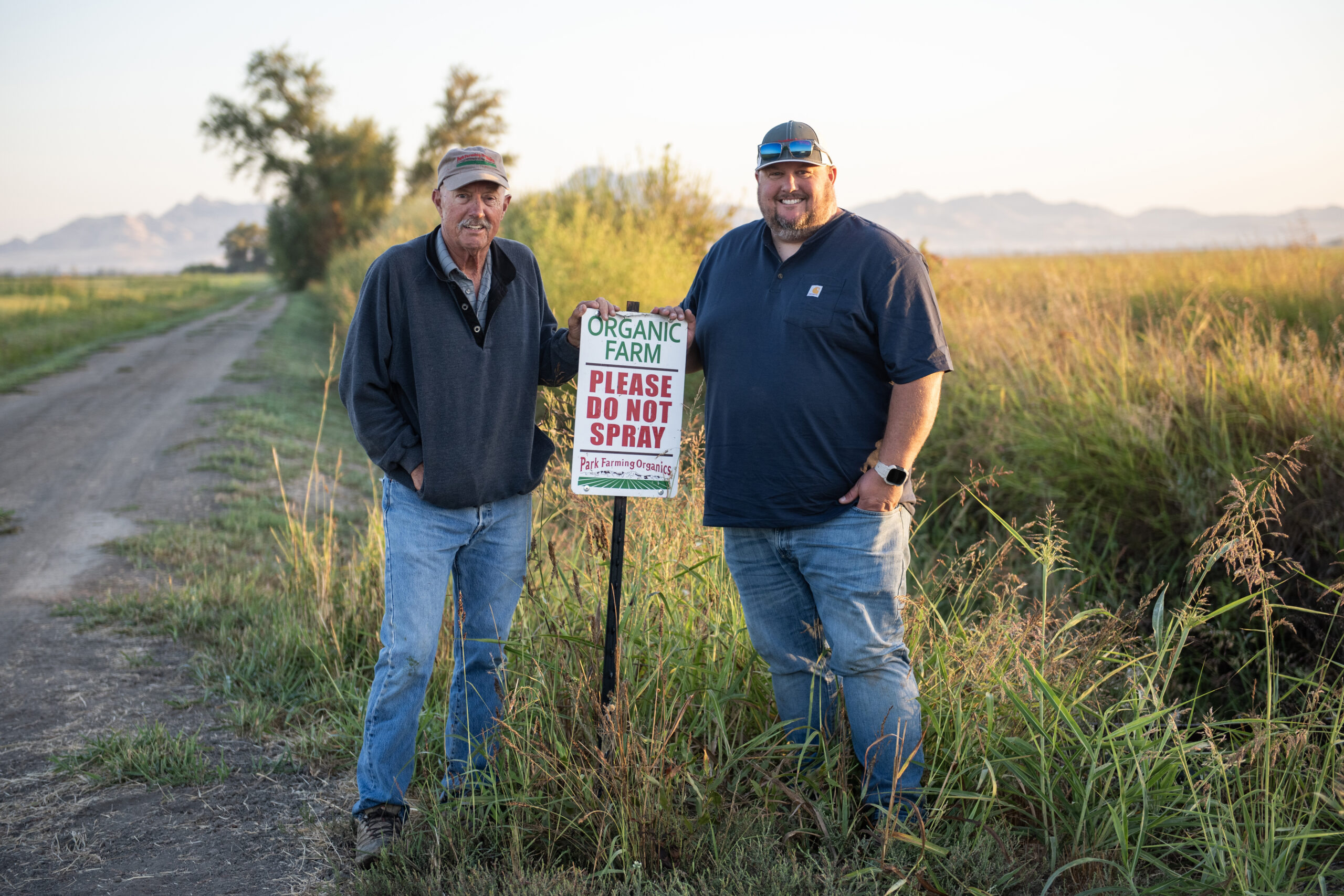
Sustainable Conservation is proud to help coordinate the California Leopold Conservation Award (LCA,) now in its 18th year! Given in honor of renowned conservationist Aldo Leopold, the award recognizes landowners who inspire others with their exemplary dedication to land, water, and wildlife habitat management on private, working lands. Since 2006, the award has recognized California farmers, ranchers, and foresters who best exemplify the Leopold conservation ethic throughout all their agricultural practices. Our 2023 recipient will be announced during the California Farm Bureau Federation’s Annual Meeting in December. The recipient will receive $10,000 and a crystal award.
This year, the award will go to one of two remarkable finalists: Bowles Farming Company Inc. and Park Farming Organics. While the farms differ greatly in their size and scale, location, crop and cropping system types, and more, they both share a long-term commitment to produce quality crops while adhering to their strict conservation philosophies. Read the below profiles to learn more about the finalists’ unique stories!
Park Farming Organics
Quick facts:
Park Farming Organics zigs while everyone else zags. Scott, Ulla, and Brian Park take pride in their operation’s unorthodox methods that yield high-quality produce while ensuring their farm’s long-term viability.
Soil health is foundational to every Park Farming practice, and investing in long-term soil health takes precedent over any short-term profit. Through meticulous practices like cover cropping, compost applications, and returning nearly all of the farm’s crop residues back to the soil, the Parks seamlessly return an average of fifteen tons of organic biomass per acre annually.
“[The Parks] have placed a premium on soil health and this has resulted in their crop plants being less susceptible to pests and their soils perennially having markedly higher overall indicators of biological health than conventional neighboring farms that produce similar crops.”
— Jeffrey Mitchell, Professor of Cooperative Extension at UC Davis.
Furthermore, crop rotations and conservation tillage help the Parks trust that their soil will produce year after year, even without high volume inputs like fertilizer and pesticides.
Park Farming Organics recently became the first “diversified, large row crop farm” to qualify for the exclusive Regenerative Certification, as regulated by A Greener World (AGW) and Regenerative Organic Certification (ROC). The Regenerative Certification goes a few steps beyond a traditional organic certification, as it considers the farm’s holistic impact on soil, water, the environment, animals, and farm employees.
Park Farming Organics is a beacon of sustainable innovation in agriculture, with the farm’s unwavering commitment to regenerative and organic practices, soil health, and quality produce all ensure a viable business and the enduring health of their land.
Stay tuned to find out which one of these fantastic finalists will receive the crystal award and a $10,000 prize for their farm! The winner of the 2023 award will be announced during the California Farm Bureau Federation’s Annual Meeting in December.
The Leopold Conservation Award in California is made possible thanks to the generous support of American Farmland Trust, California Farm Bureau Federation, Sand County Foundation The Harvey L. & Maud C. Sorensen Foundation, Farm Credit, The Nature Conservancy in California, McDonald’s, and California LCA recipient alumni.
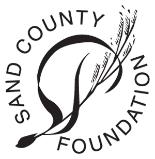 SAND COUNTY FOUNDATION
SAND COUNTY FOUNDATIONSand County Foundation inspires and enables a growing number of private landowners to ethically manage natural resources in their care, so future generations have clean and abundant water, healthy soil to support agriculture and forestry, plentiful habitat for wildlife and opportunities for outdoor recreation.
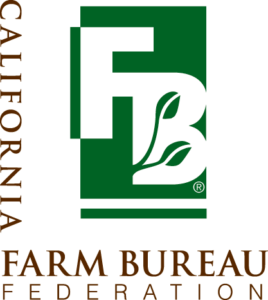 CALIFORNIA FARM BUREAU FEDERATION
CALIFORNIA FARM BUREAU FEDERATIONThe California Farm Bureau Federation works to protect family farms and ranches on behalf of nearly 40,000 members statewide and as part of a nationwide network of more than 5.5 million Farm Bureau members.
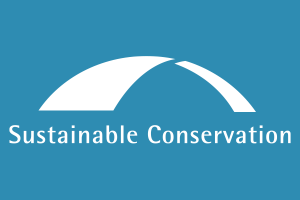 SUSTAINABLE CONSERVATION
SUSTAINABLE CONSERVATIONSustainable Conservation helps California thrive by uniting people to solve the toughest challenges facing the state’s land, air and water. Since 1993, it has brought together business, landowners and government to steward the resources that all Californians depend on in ways that make economic sense. Sustainable Conservation believes common ground is California’s most important resource.

